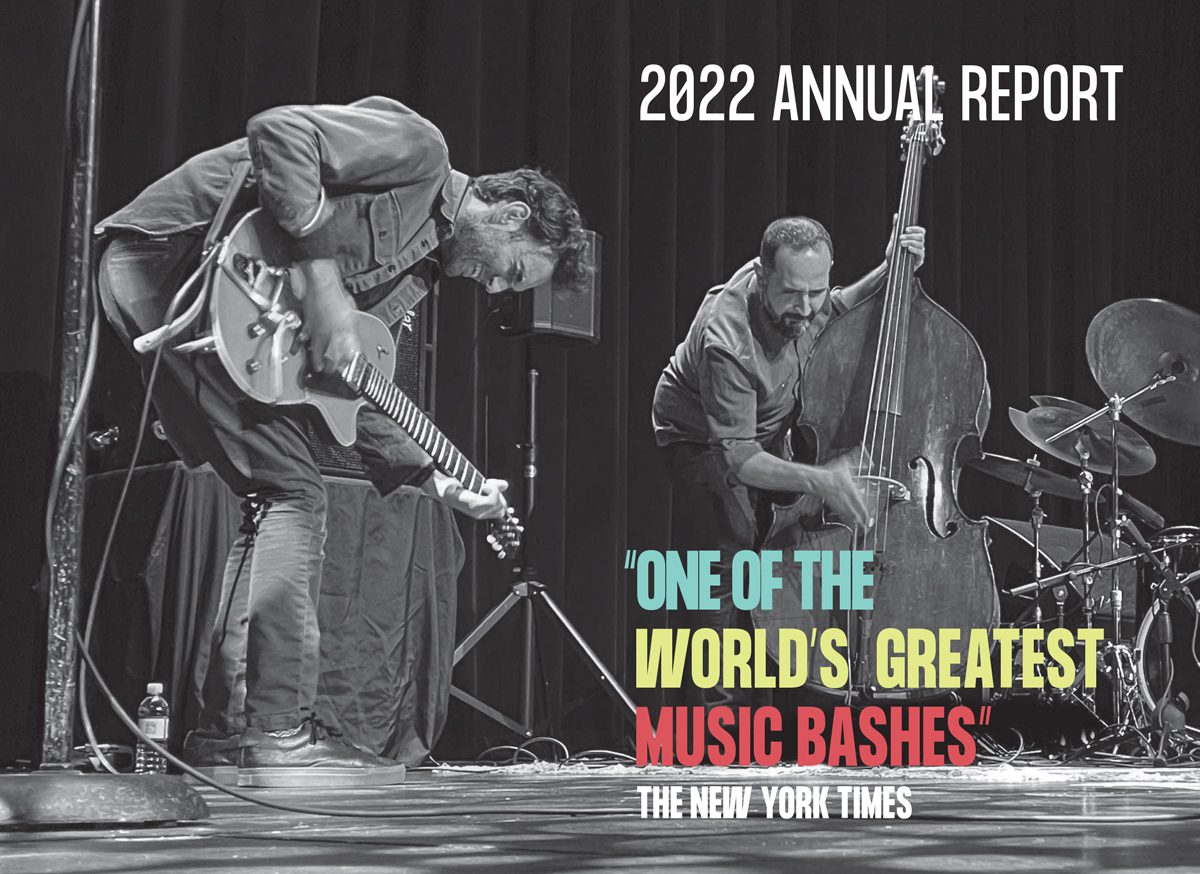Big Ears Recommends: Nate Chinen’s Playing Changes
The death of jazz has, if anything, been a cruelly slow one. For at least forty years now, the great American art has been memorialized and eulogized by an array of journalists and critics, essayists and industry types, noting not only that the sales numbers aren’t what they used to be but also that the music itself has grown static and staid or morphed into something that best not be called jazz. These tomes appear with clockwork predictability, alternately marking the end through Coltrane’s death or Miles’ electricity or Marsalis’ ascension or some other macabre moment. They have been and remain, of course, wrong and reductive, led astray by listening to a small set of musicians or simply ignoring the vital work that countered the need for clickbait.
But Playing Changes is here to settle the score at last, to right the record by showing us that jazz has never needed a resurrection because it has never actually died. Written by longtime New York Times and NPR critic Nate Chinen, Playing Changes combines meticulous historical research with a clear and broad grasp of the present to demonstrate that the innovative essence of jazz never disappeared, even if had to shapeshift or slink underground to thrive. Chinen is a perceptive, detailed listener and a passionate analyst, pulling you into a moment of music and convincing you why it matters with absolute clarity.
In Playing Changes, Chinen traces the crooked paths from past luminaries who were often overlooked in favor of those jazz-is-dead proclamations to the rising stars of this moment—from Alice Coltrane’s spirituality to Kamasi Washington’s urgency, from Keith Jarrett’s undersold quartets to Wayne Shorter’s revolutionary new one, from Joshua Redman through Brad Mehldau to Jason Moran. The scene is now in full swing, if you will, driven by what Chinen calls a “trend toward polyglot hypermodernism, toward unexpected composites and convergences.” Chinen gives us a clear window into what is a busy world, concisely telling us why we should care and showing his work by reckoning with the sounds themselves. Playing Changes is a genuinely restorative book, a corrective that helps make the thrilling if scattered sprawl of modern jazz cohesive. As you read, you want to listen, to get involved.
The animating spirit and core of Playing Changes—that jazz has always pushed ahead, even as others have pushed it aside—resonates with the sense of programming that Big Ears has fostered during the last decade. (He even cites us at the start, on page four.) On our stages, those pioneering masters have shared spaces and one-off collaborations with the very musicians Chinen profiles—drummer Milford Graves with pianist Jason Moran, Moran in turn with guitarist Mary Halvorson and trumpeter Ron Miles, great American composer Roscoe Mitchell with clear descendant Tyshawn Sorey, and so on since 2009.
What’s more, the unfortunate arc that Chinen details for jazz—where its obsolescence became an untested assumption despite a preponderance of music that argued otherwise—applies to so many forms that have been occasionally written off as irrelevant, from classical composition to folk songwriting. Taken together, though, the veterans of Big Ears and so many other musicians that have yet to appear in Knoxville show that the signal has often remained strong, even when it’s surrounded by noise and naysayers. Next week, we’ll announce the bulk of the lineup for Big Ears 2019, and it will again draw the lines between the past and present of not only jazz but also electronic, classical music, and so much more.
We live in an exciting musical moment. By detailing a specific lesson that we can apply broadly, Playing Changes makes it abundantly clear we have for a long time.
Purchase Nate Chinen’s Playing Changes here.
Explore the Big Ears Lineup here.




